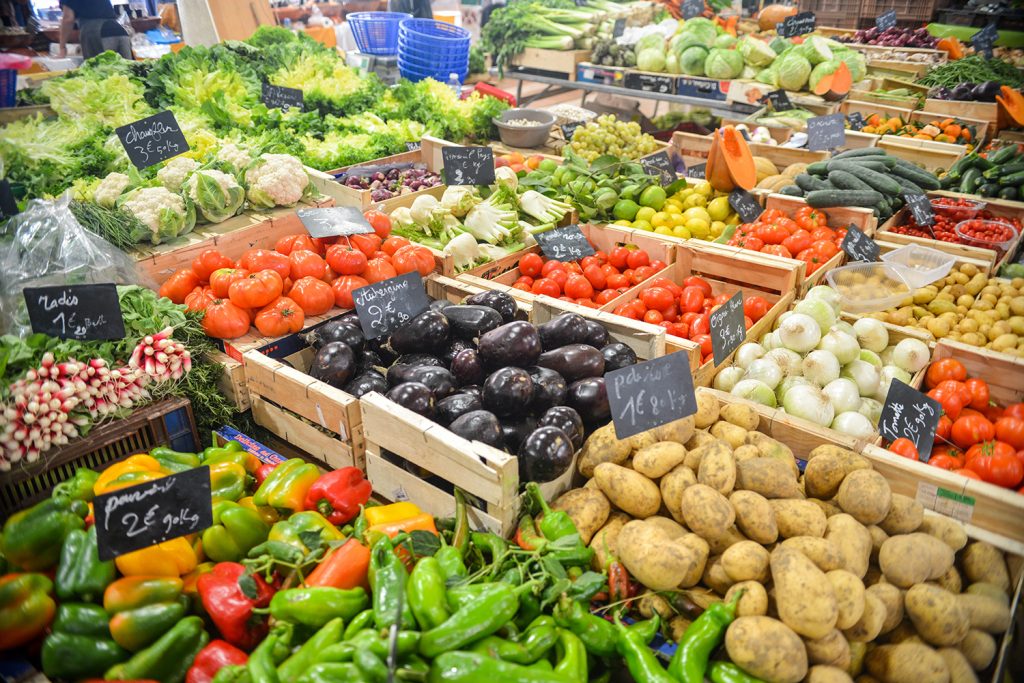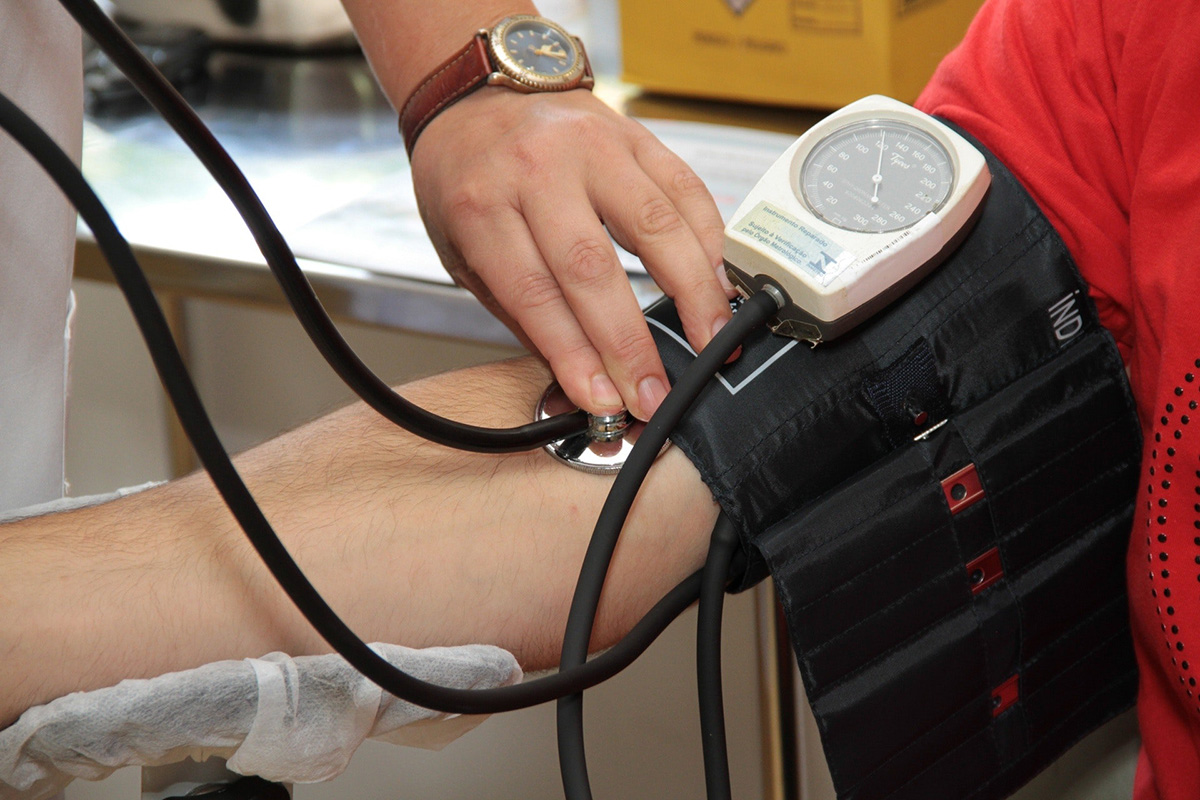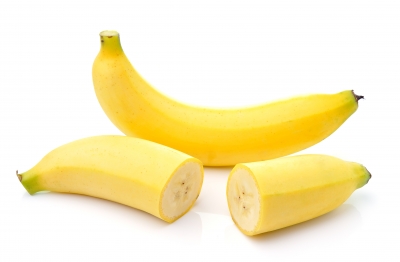Are You Eating Enough Potassium?

If you have high blood pressure, one of the most important nutrients to increase in your diet is potassium.
If you’ve looked into the DASH diet (Dietary Approaches to Stop Hypertension) you’ll see that it is extremely high in fruits and vegetables. This is partly due to fruits and vegetables being rich sources of potassium . . . among other beneficial nutrients.
It’s recommended by the Institute of Medicine that adults consume 4700 milligrams (mg) of potassium daily. However, the average adult intake is typically around 2300 mg.
Here are the fruits and vegetables that are the best sources potassium:
Lower High Blood Pressure: 5 Ways

Let’s cover five ways you can lower high blood pressure through dietary changes.
1. Increase your intake of fruits and vegetables
The DASH (Dietary Approaches to Stop Hypertension) diet is a very effective meal plan to lower blood pressure. The diet is high in fruits and vegetables, including 4-5 vegetable servings and 4-5 fruit servings everyday.
Fruits and vegetables are rich sources of fiber and phytonutrients essential to heart health and promotion of a lower blood pressure. The more the better!
2. Decrease sodium intake
Sodium & Potassium – Are you getting too much or too little?
 I’ve shared information previously on the benefits of a high potassium diet and reduced blood pressure. However, another study has found an increased risk of death from heart disease to be linked to a diet high in sodium and low in potassium.
I’ve shared information previously on the benefits of a high potassium diet and reduced blood pressure. However, another study has found an increased risk of death from heart disease to be linked to a diet high in sodium and low in potassium.
High sodium, low potassium equals increased risk of death
According to research Elena V. Kuklina, consuming a diet high in sodium and low in potassium results in a 50% increased risk of death from any cause and almost doubles the risk of death from heart disease. The study I’m referencing was published in the Archives of Internal Medicine.
Study Participants
Researchers followed over 12,000 US adults. The participants did not follow a reduced salt diet nor did they have a history of heart conditions or stroke. Participants were followed for 15 years. During this time 2,270 participants died. Out of this number, 1268 died from cardiovascular disease.
Study Results
Heart Disease & Potassium
 Potassium is involved in the normal function of nerve and muscle cells, including the heart. Most potassium in the body – 98% – is found within cells (i.e. intracellular). When extracellular potassium levels become too high a condition known as hyperkalemia develops.
Potassium is involved in the normal function of nerve and muscle cells, including the heart. Most potassium in the body – 98% – is found within cells (i.e. intracellular). When extracellular potassium levels become too high a condition known as hyperkalemia develops.
Hyperkalemia is a condition where serum potassium levels are greater than 5.5 mEq/L.
Hyperkalemia & Heart Disease
Will Avocados Lower Blood Pressure?
 Avocados are high in fat; however, they contain heart healthy monounsaturated fats providing anti-inflammatory and antioxidant protection. The avocado inner flesh is a good source of the fatty acid alpha-linoleic acid. Avocados are rich in vitamin B6, pantothenic acid, folic acid, and vitamin E. They also provide the minerals magnesium (important for lower blood pressure!), copper and iron. Avocados also contain the anti-carcinogenic antioxidant glutathione, as well as the beta-sitosterols to promote lower cholesterol levels.
Avocados are high in fat; however, they contain heart healthy monounsaturated fats providing anti-inflammatory and antioxidant protection. The avocado inner flesh is a good source of the fatty acid alpha-linoleic acid. Avocados are rich in vitamin B6, pantothenic acid, folic acid, and vitamin E. They also provide the minerals magnesium (important for lower blood pressure!), copper and iron. Avocados also contain the anti-carcinogenic antioxidant glutathione, as well as the beta-sitosterols to promote lower cholesterol levels.
Avocados and Potassium
Now, here’s something I bet your didn’t know – Avocados have more potassium than bananas. Half a medium avocado contains 549 mg potassium, while one medium banana provides 451 mg.
Lower Blood Pressure with Potassium
 The effectiveness of potassium to lower blood pressure is directly related to sodium. Potassium works to balance out the sodium in your diet. An adequate potassium intake can lower systolic pressure ~4.4 mm Hg and diastolic pressure ~2.5 mm Hg.
The effectiveness of potassium to lower blood pressure is directly related to sodium. Potassium works to balance out the sodium in your diet. An adequate potassium intake can lower systolic pressure ~4.4 mm Hg and diastolic pressure ~2.5 mm Hg.
If you want to prevent or lower blood pressure it’s very important you balance your intake of sodium and potassium. The more potassium in your diet and the lower the sodium, the better your blood pressure will be.
Sodium Recommendations
The typical American diet contains 3.6 grams of sodium daily. It’s recommended that sodium intake be limited to 2.3 grams or less daily (~1 teaspoon). If you already have high blood pressure you’ll want to restrict your sodium intake even further – less than 1500 mg/day.
How Much Potassium?



